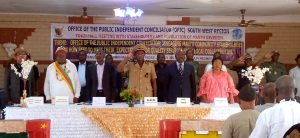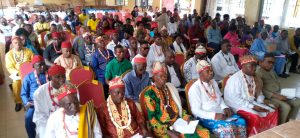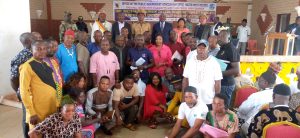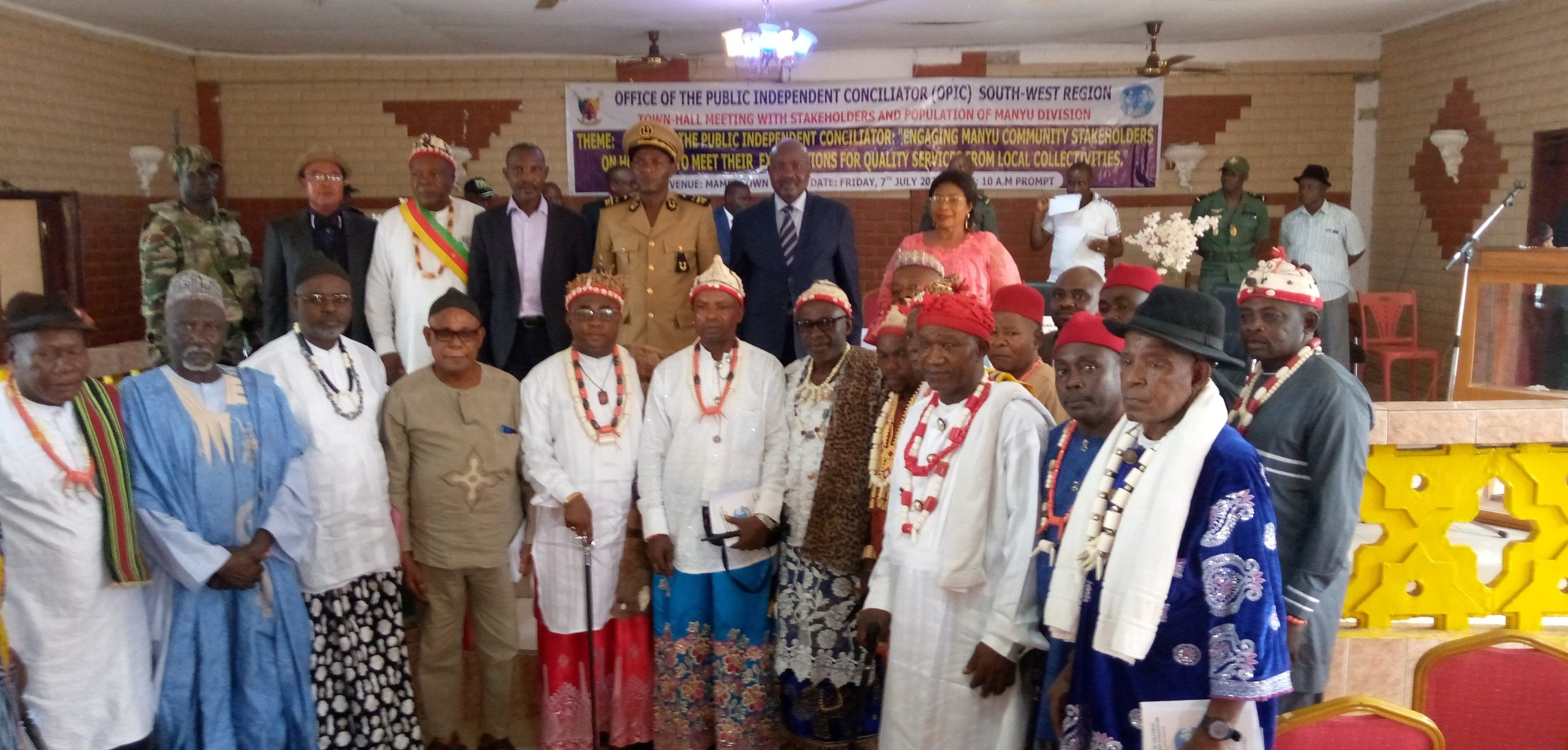
The Senior Divisional Officer for Manyu and the Representative of the Public Independent Conciliator with the D.O for Mamfe Central and Lord Mayors.
The population of Manyu Division is now more informed about the missions of the Office of the Public Independent Conciliator. The community stakeholders comprising traditional rulers, religious authorities, youth leaders, economic operators, civil society organization drawn from Akwaya, Eyumujock, Mamfe and Upper Bayang subdivisions were on July 7 2023 schooled on these missions. Apart from being educated on the missions and complain procedure, they were equally briefed on their rights and obligations as users of council services.

A Cross section of traditional rulers of Manyu Division present during the Town-Hall meeting
The Town-Hall meeting organized by the institution on the theme: Office of the Public Independent Conciliator: “Engaging Manyu Community Stakeholders on How Best to meet their Expectations for Quality Services from Local Collectivities” was also an opportunity for council workers to be reminded of their obligations towards Service Users and citizens in general. During her presentation, Tabe Adel told mayors to remain committed in providing quality services to their population.

Family picture of the Senior Divisional Officer and the Representative of the PIC with participants drawn from Civil Society Organizations, Youth Associations and Business operators.
Speaking during the opening ceremony in the presence the Senior Divisional Officer for Manyu, Viang Mekala, the Representative of the Public Independent Conciliator, Fonju Bernard, said the intention of the institution in organizing the Town-Hall meeting was to work with frontline community stakeholders of the different councils or local collectivities of Manyu to enhance services delivery to users of council services. He added that it is the desire of OPIC to see that users play their role in fostering a User- friendly culture with their councils by fulfilling their duties and respecting their obligations towards the council for the good of their municipalities.
At the end of the presentations, participants asked questions on various issues concerning their interaction with the council and the missions of OPIC. Issues raised amongst others were; the extent to which the Office of the Public Independent Conciliator can go in resolving disputes between parties if they disagree, the allocation of hours devoted to the hygiene and sanitation day in the municipality, the non-provision of copies of presentation, prerogatives in the management of inter-urban transport by Councils, the establishment of birth certificates etc. To these concerns, the resource persons attempted to provide answers and complementary information for the understanding of the participants.


